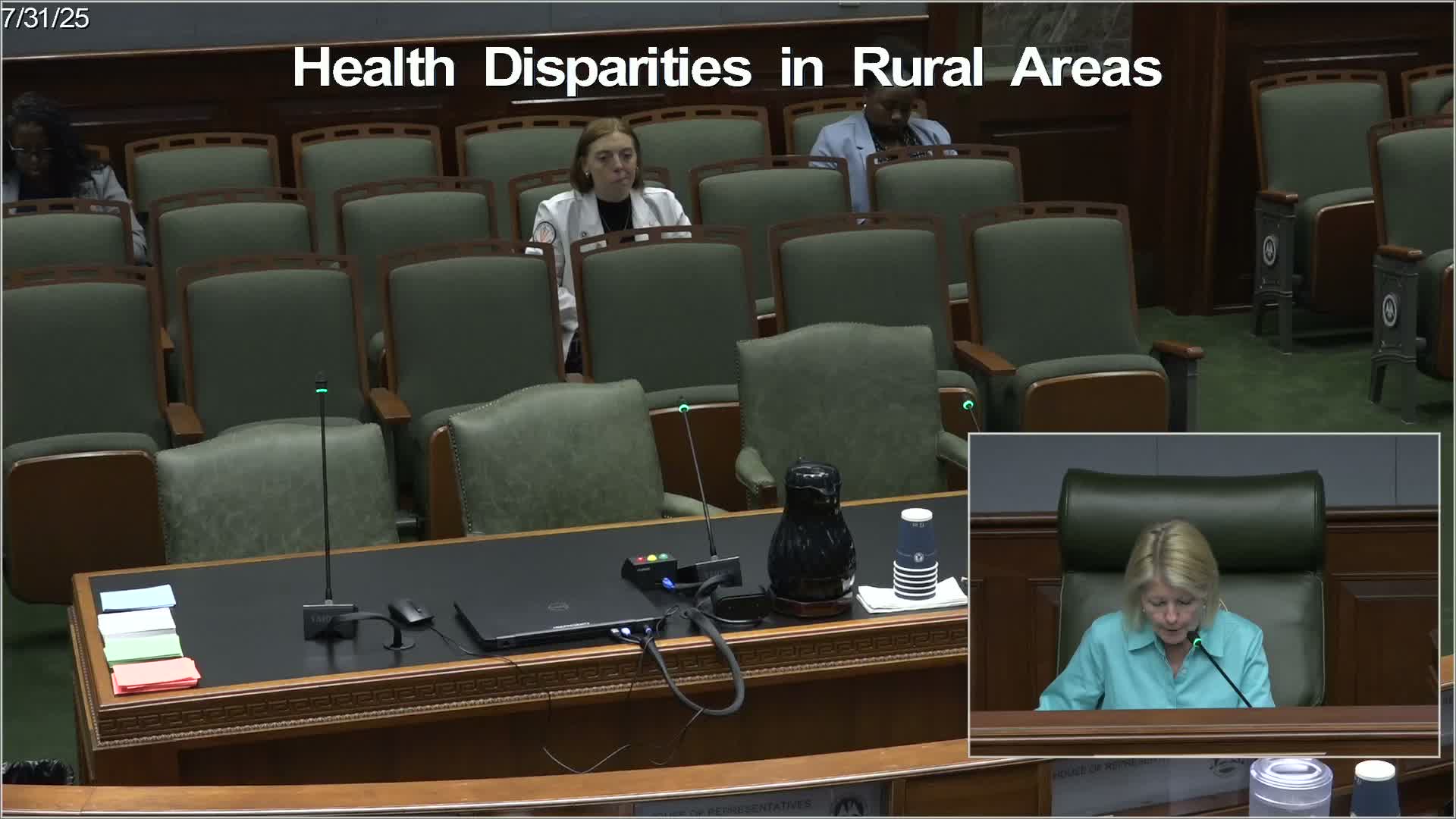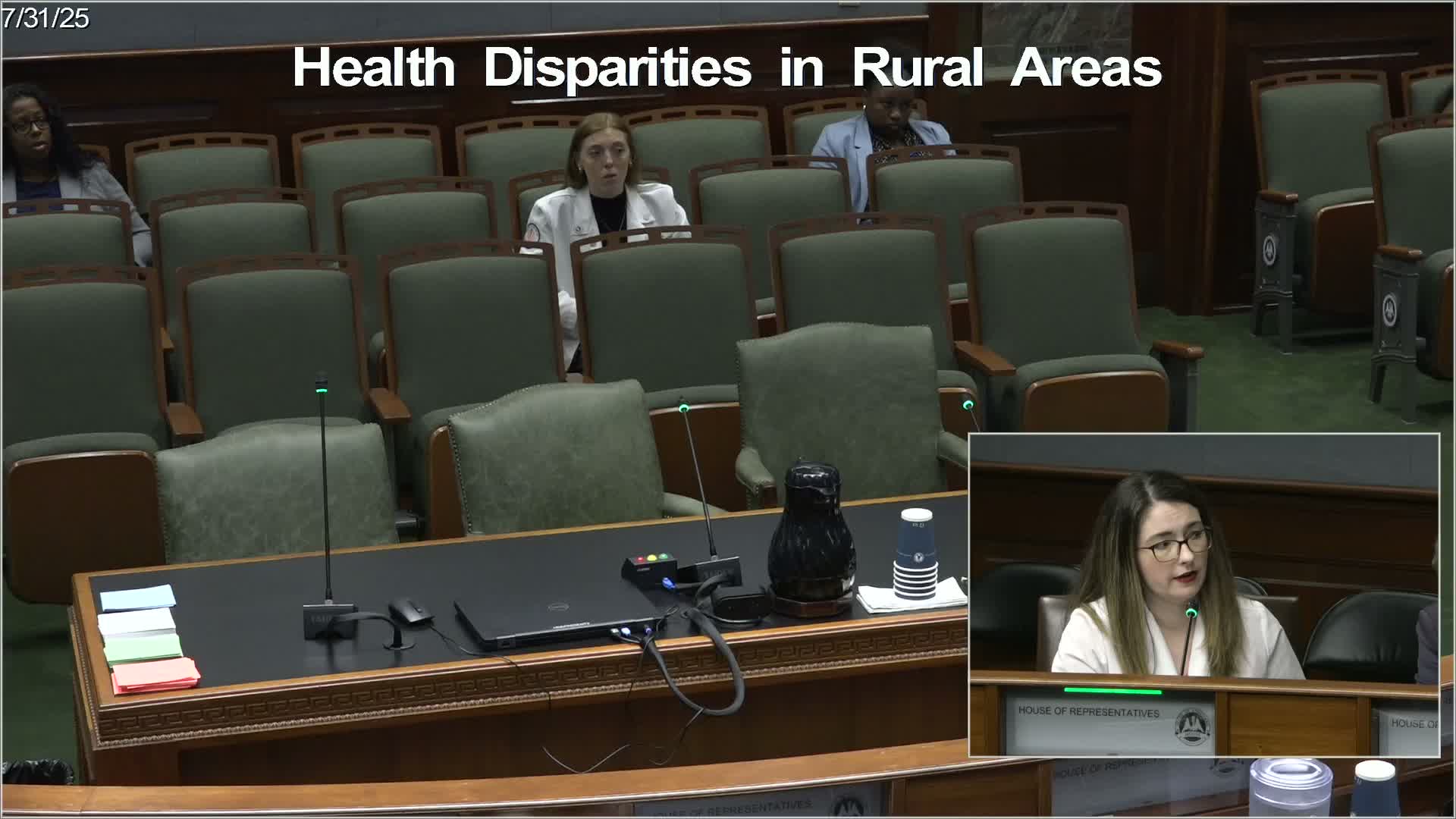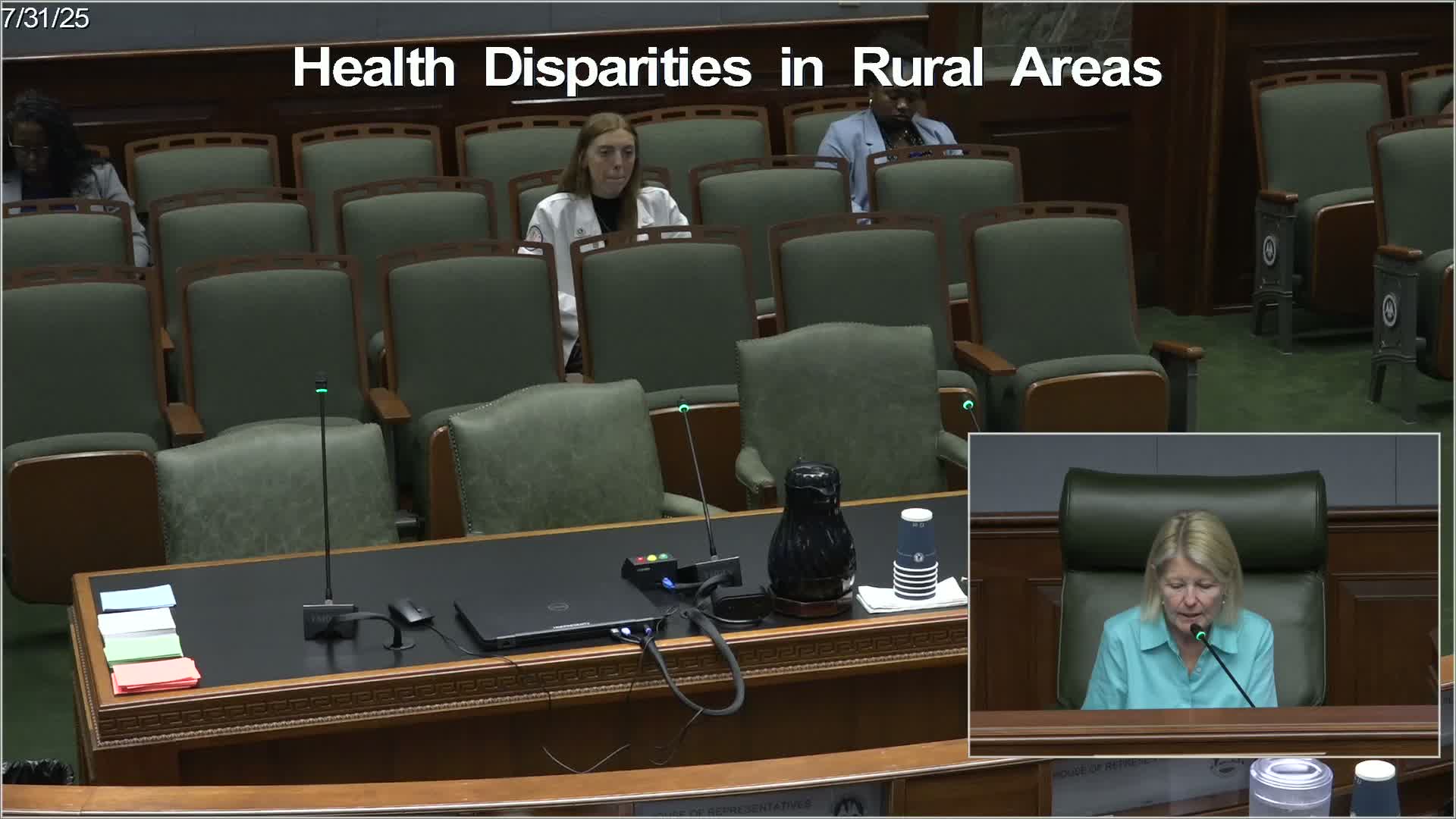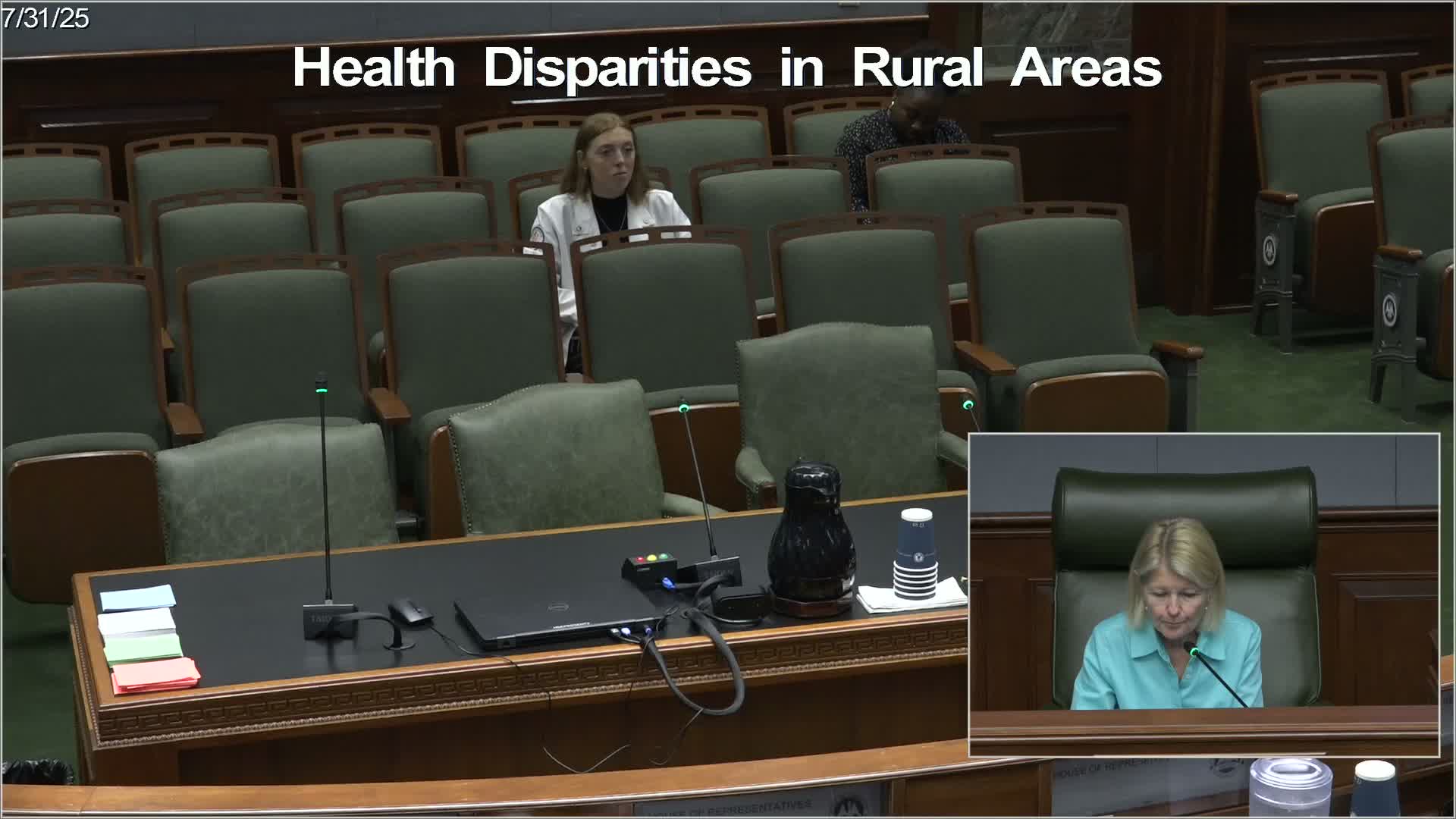Article not found
This article is no longer available. But don't worry—we've gathered other articles that discuss the same topic.

Task force examines behavioral health crisis centers, ED clearance pilot and telehealth data pilot for addiction care

Task force highlights community health workers, mobile clinics and HPSA mapping as workforce solutions for rural care

Task force to study insurance gaps, poverty and infrastructure as drivers of rural health disparities

